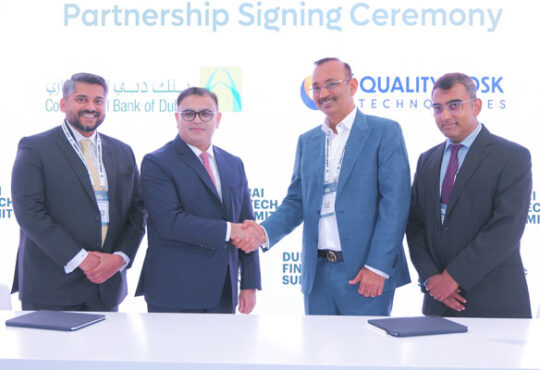
Ministry of Power in association with The Central Electricity Authority and IESA (India Energy Storage Alliance) organised a thought leadership discussion at the India Pavilion, Dubai, UAE at COP 28 on Cost Effective Energy Storage System for Energy Transition and Integration of Renewable Energy.
Mr. Vijay Menghani, Chief Engineer, Clean Energy kicked off the session which was followed by the welcome address by Sh. Ghanashyam Prasad, Chairperson, CEA, Ministry of Power.
The session began with the welcome address of Sh. Ghanashyam Prasad, Chairperson, CEA, Ministry of Power. During his address he said, “At present all of are aware and concerned about the global warming, climate change and the need to reduce carbon emission. Each country has charted out the path to achieve them, India too has been serious on it. We have performed and achieved our targets. We have already achieved our commitment given in COP 26 in 2021, that is 9 years ahead of 2030. Thus we enhanced the target in COP 27 to achieve now 50 percent of the installed capacity by 2030 as against the Paris commitment of 40 percent. We shall achieve this as well. Not only this we will even surpass this target for COP 27 maybe to set new standards of for COP 28. India as a country has performed, achieved and has shown the path of energy transition and organisation. The task is very difficult for us as we are still growing at the pace of 7 to 9 percent unlike other countries whose growth has either stopped or stagnated or is at declining rate. For such countries the path is simple and must contribute for India and many other countries.”
He added, “The energy security of our consumers is of paramount importance. So we must consider energy security along with energy transition. Thus efforts are being made to ensure base power stations also the focus is on installation of renewables weather it is solar or wind energy storage systems in India. The fund requirement for achieving the energy storage as per the National Electricity Plan is huge, it is around 52 Billion USD by 2030 itself. At present without storage no country can think about energy transition. India has already made all the necessary policy guidelines to facilitate integration of storage in grids. Demand for green power is increasing in India. Our commercial and industrial consumers are ready to take green power. Thus in India going green has become a mission and a mass movement. Already the rate of addition of renewable resources in India is one of the fastest in the world. Environment impact of energy storage also needs to be seen, especially mitigating battery recycling mechanism. We encourage manufacturers across the world to come and set up in India, They will have domestic market as well as export opportunities. There are challenges especially the high cost of BSS. To reduce the cost of BSS all the stakeholders need to work on it for technological advancement. We need long duration energy storage systems as well as we climb the ladder of energy transition. India will meet its commitment. We will take all measures to promote energy storage system adoption. Let us all work together in the development of new cost effective products andease of sharing storage technology.”
Dr. Rahul Walawalkar (storage Man in India), President, IESA, MD, CES India, Chair, World Energy Storage Day (WESD) who was the Moderator of the session also shared critical insights and provided an overview of various policy and regulatory changes that have opened up energy storage opportunities in India.
Mr. Chandrasekar Govindarajalu, ESMAP Acting Practice Manager, World Bank in his address provided an overview of initiative from world Bank under ESP and role of financing for the clean energy transition. He also discussed details of the initiative from World Bank under ESP and role of financing for the clean energy transition.
Mr. Vijayanand Samudrala, President, New Energy, Amara Raja Group talked about the manufacturing perspective and shared insights on plans of Amara Raja group to become a key player in advanced energy storage technologies.
Mr. Sumant Sinha, Chairman and CEO, ReNew shared insights form the RE (Renewable Energy) developer and IPP perspective. He went in depth on how renew led the RTC and peak power tenders. He also spoke about how RE plus storage in next 3-5 years is expected to replace even base load coal.
Mr. Stephen Fernands, President, Customized Energy Solutions gave insights from the energy storage adoption in US over past decade driven by market rule changes. He also shared his experience of managing over 2GWh energy storage in various electricity markets through CES Marlet operations centre that manages over 20GW of assets.
This session discussion provided a holistic understanding of the current scenario and the future roadmap of India’s strategy to progress towards cost effective energy storage system for energy transition and integration of renewable energy. It also showcased how India is taking strong strides in achieving its COP 28 targets.
About Ministry of Power:
The Ministry of Power is an Indian government ministry. The ministry is charged with overseeing electricity production and infrastructure development, including generation, transmission, and delivery, as well as maintenance projects
About Central Electricity Authority (Ministry of Power):
The Central Electricity Authority of India (CEA) advises the government on policy matters and formulates plans for the development of electricity systems. It is a statutory organisation constituted under section 3(1) of Electricity Supply Act 1948, which has been superseded by section 70(1) of the Electricity Act 2003.
About IESA (Energy Storage Association in India):
It is a leading industry alliance focused on the development of advanced energy storage, green hydrogen, and e-mobility technologies in India. Founded in 2012, by Customized Energy Solutions (CES), IESA’s vision is to make India a global hub for R&D, manufacturing, and adoption of advanced energy storage, e-mobility, and green hydrogen technologies.
The alliance has been at the forefront of efforts seminal in shaping an enabling policy framework for the adoption of energy storage, electric mobility, green hydrogen, and emerging clean technologies in India.
With close to a decade of experience, IESA provides its member network a holistic eco-system to network and grow their business in India and world over by providing in-depth analysis of the market, facilitating dialogue between industry and government stakeholders, and providing the latest skill-development training. Over the years, IESA has launched several initiatives that support its member companies to stay ahead of the curve.
Today IESA is a proud network of 160+ member companies, encompassing industry verticals from energy storage, EV manufacturing, EV charging infrastructure, green hydrogen, microgrids, power electronics, renewable energy, research institutes and universities, and cleantech start-ups.







